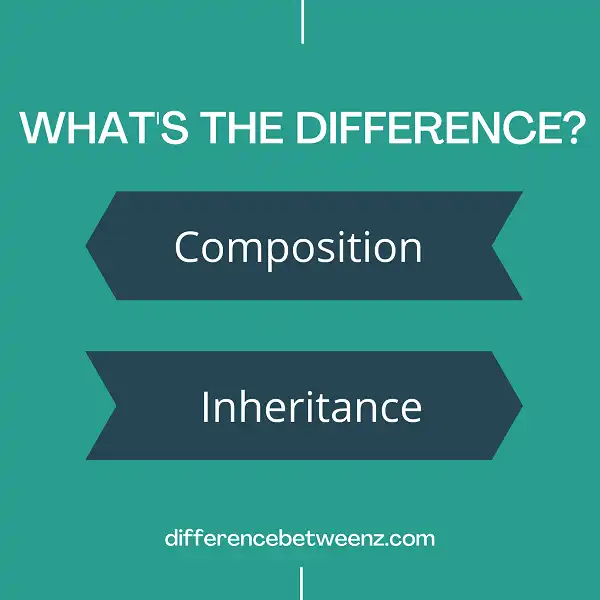Inheritance and composition are two important concepts in object-oriented programming. However, they are often confused with each other. In this post, we will look at the difference between inheritance and composition, and when to use each one. We will also see some examples of how these concepts can be used in practice.
What is Composition?
Composition is an object-oriented programming technique that allows you to combine objects into more complex ones. It’s a way of creating new classes by combining existing ones. In other words, it enables you to put together parts to create a new whole. The advantage of composition over inheritance is that it’s more flexible. You can change the behavior of an object by adding or removing components, without having to change the code of the original class. This makes composition more resilient to change and easier to maintain. When should you use composition? Composition is a good choice when you need to be able to vary the behavior of an object at run-time, or when different objects can share some common behavior. For example, if you were creating a shape-drawing program, you could use composition to create shapes from other shapes. You could start with a few basic shapes, such as circles and squares, and then use those to create more complex shapes, such as triangles and rectangles. By using composition, you would only have to write the code for the basic shapes once. And if you later decided to add a new kind of shape, such as an oval, you could do so without having to change any existing code.
What is Inheritance?
In programming, inheritance is the process by which one object acquires the properties of another object. The concept of inheritance is based on the idea of superclasses and subclasses: a superclass is an existing class from which a subclass can be derived, while a subclass is a new class that inherits the attributes of its superclass. Inheritance allows for the reuse of code and the creation of overall more efficient and reliable programs. It also helps to promote code modularity, making it easier to make changes to programs without having to make extensive modifications. In short, inheritance is a powerful tool that can be used to great effect in programming.
Difference between Composition and Inheritance
A programming language is said to support inheritance if it allows a class to derive properties and characteristics from another class. Inheritance is a powerful tool that can be used to reduce code duplication and improve code organization. However, it is important to understand the difference between composition and inheritance. Composition is a way of representing has-a relationship, while inheritance is a way of representing is-a relationship. For example, a car has an engine, so the engine can be considered as part of the car. This is an example of composition. In contrast, a car is a vehicle, so it inherits the properties of a vehicle. This is an example of inheritance. Both composition and inheritance are useful tools, but they should be used in different situations.
Conclusion
In programming, the composition is the process of combining two or more objects into a single object. The resulting object has all the properties and behaviors of the original objects. Composition is often used to create complex designs by using simple components. In C++, the composition can be implemented using the ‘composite’ template class. Inheritance, on the other hand, is a mechanism that allows one class to inherit the properties and behaviors of another class. When a class inherits from another class, it becomes a child of that parent class. In C++, inheritance can be implemented using the ‘inherit’ keyword. It’s important to understand the difference between composition and inheritance because they are two different ways.


